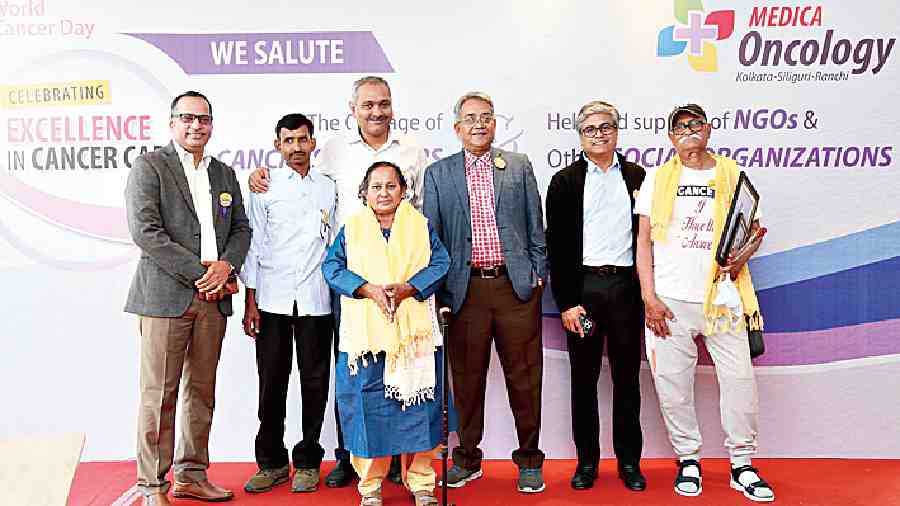Many cancer patients reach a doctor by the time the disease has reached an advanced stage, thus requiring multimodal treatment that overburdens an already stretched health infrastructure and also increases the cost of treatment.
If cancer is detected early and the number of cases can be reduced, both of which are possible, providing adequate care to the remaining cancer patients will become easier, doctors said at a programme on World Cancer Day.
This year’s theme was “close the care gap”.
Doctors said in a country as widely populated as India, it is impossible to bridge the gap in providing care unless cancer was detected early and the incidence was reduced.
A doctor associated with the Institute of Post Graduate Medical Education and Research (SSKM Hospital) said the way to his chamber is crowded with patients. “Such is the disease burden in our country,” he said.
Early detection would require cancer screening among healthy people, with extra focus on those at high risk of getting the disease. These include people who are obese, have someone in the family with a history of cancer or someone who consumes tobacco or alcohol. Voluntary visits to doctors at any sign of anomaly would also help.
“A large number of cancer patients in India reach a hospital in an advanced stage. They have to go undergo surgery, radiotherapy and chemotherapy. This multimodal treatment puts stress on the health infrastructure,” said Sourav Datta, director of medical oncology at the Medica Superspecialty Hospital.
“If the same people were detected with cancer at an early stage, they would have been fine with surgery only.”
Detection at an advanced stage also means more financial burden on the family and lesser possibility of cure.
Gautam Mukhopadhyay, director of surgical oncology at Peerless Hospital, said one of the problems in Bengal was that the hospitals lacked a preventive oncology department.
“All our hospitals should have a preventive oncology department.”.
Though the doctors wished there was a drop in new cases of cancer, the reality in India is, however, the opposite. The National Cancer Registry Programme 2020, released by the Indian Council of Medical Research (ICMR) and the National Centre for Disease Informatics and Research, estimated a 12 per cent increase in cancer cases in India between 2020 and 2025 based on trends.
Arunava Roy, the head of gynecologic oncology at Medica Superspecialty Hospital, said cervical cancer was vaccine-preventable, but very few people take the vaccine.
“Cervical cancer is caused by the human papillomavirus and a vaccine is available to prevent this type of cancer. The vaccine can also give protection against some other cancers like some kinds of oral and anal cancer,” he said.
